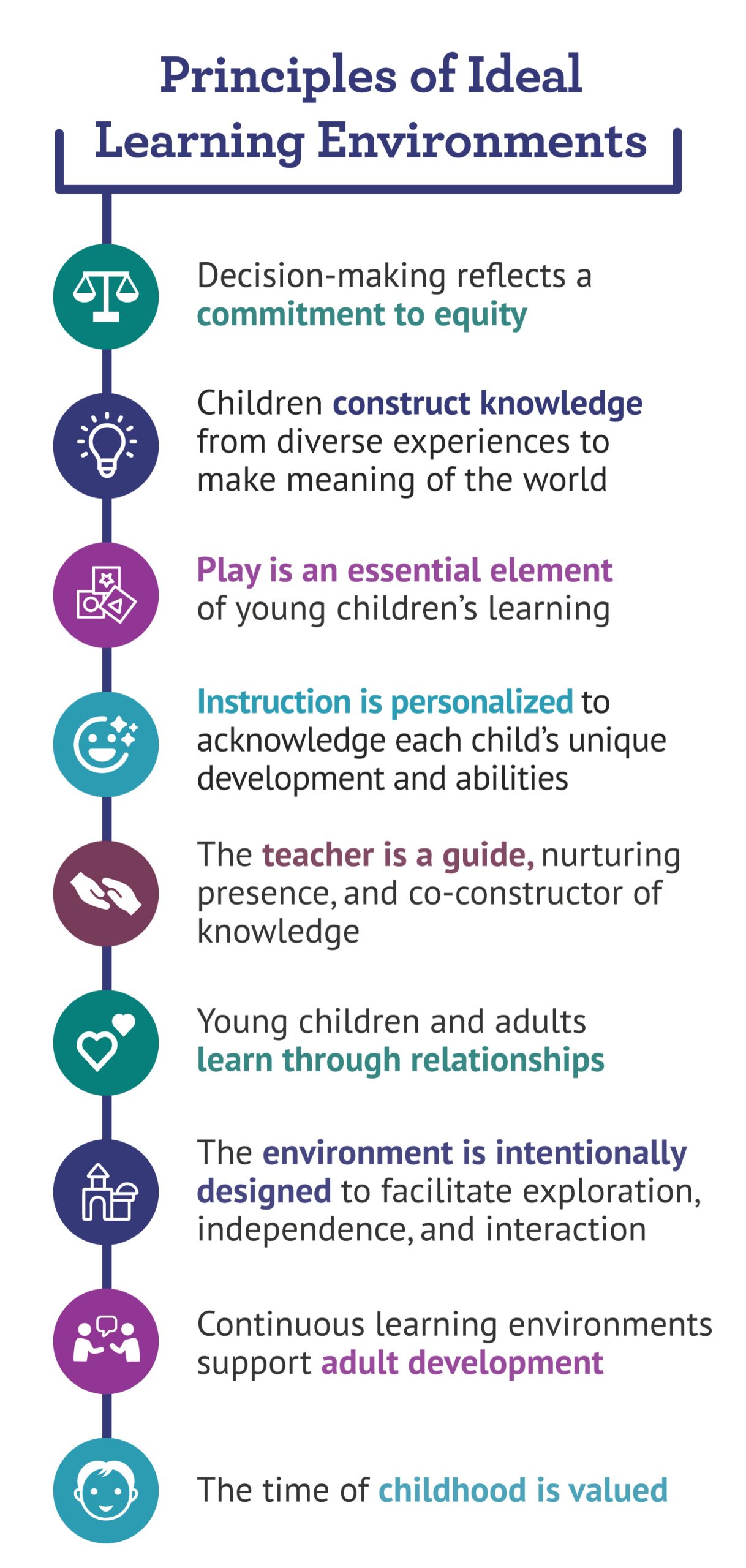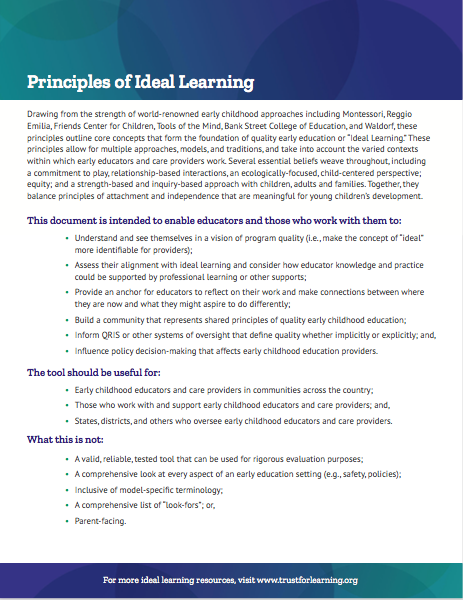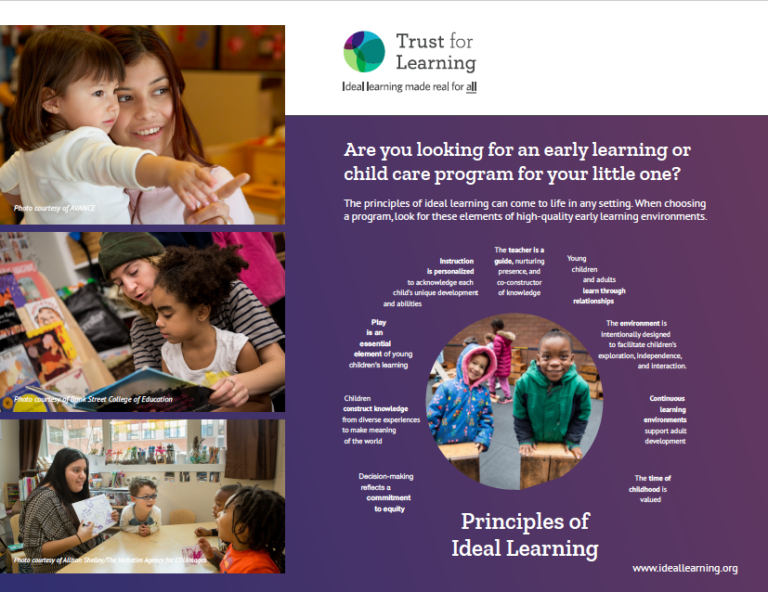
Principles of Ideal Learning
Drawing from the strength of world-renowned early childhood approaches, these nine principles outline core concepts that create ideal learning environments for young children across settings. They allow for multiple approaches, models, and traditions, and take into account the varied contexts within which early educators and care providers work. Several essential beliefs weave throughout, including a commitment to equity; learning through play, relationship-based interactions, an ecologically-focused, child-centered perspective; and a strength-and inquiry-based approach with children, adults and families. Together, they balance principles of attachment and independence that are meaningful for young children’s development.

Ideal Learning in Principle and Practice
This resource contains more detail about each principle of ideal learning, as well as profiles of eight distinctive ideal learning approaches — All Our Kin, Bank Street College of Education, Friends Center, HighScope, Tools of the Mind, Montessori, Reggio Emilia-Inspired, and Waldorf.

Choosing an ideal learning environment for your child
Are you looking for an early childhood program for your young child? This brief resource explains what to look for in high-quality settings from child care to Pre-K to elementary school.

Let's learn together!
Thank you for everything you do to create ideal learning environments for the children you work with. Please join us to stay connected!
